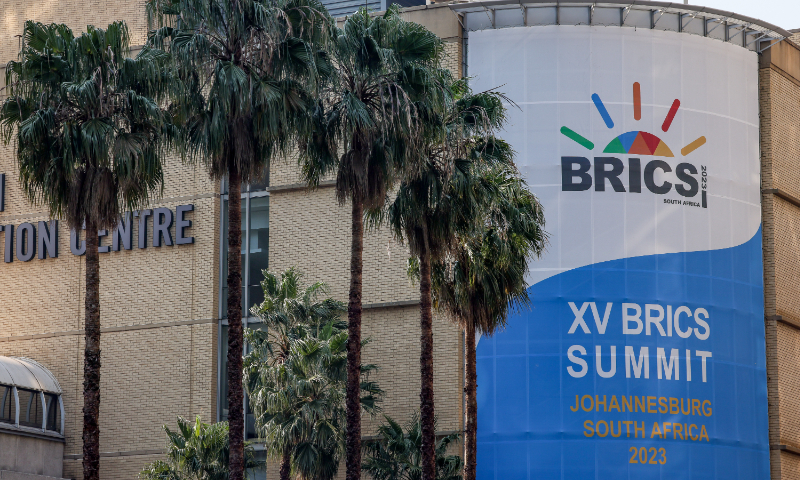Thailand’s Bid for BRICS Membership: Strategic Diversification and Regional Implications
Thailand’s recent decision to apply for membership in BRICS—a group consisting of Brazil, Russia, India, China, and South Africa—marks a significant pivot in its foreign and economic policy. The move aims to expand Thailand’s strategic partnerships and reduce its dependency on traditional allies, such as Western nations and ASEAN neighbors. Tharakorn Wusatirakul, the president of the BRI Institute of Research Development on Economics and Education in Thailand, shed light on the country’s motivations and potential benefits in an exclusive interview with the Global Times.
A Proactive Move
Thailand’s application to join BRICS, formally submitted in late June, represents a proactive approach in seeking diversified economic opportunities. According to Wusatirakul, this strategy allows Thailand to mitigate risks associated with relying on a handful of key trading partners. By aligning itself with the BRICS countries, Thailand aims to gain a foothold in global discussions and initiatives that influence economic governance and development.
The BRICS group, established as a counterbalance to Western-dominated economic mechanisms, emphasizes cooperation among emerging economies. The bloc focuses on development, trade, and investment, which align with Thailand’s objectives. Over 30 countries have shown interest in joining BRICS, with 10 having officially applied. Notably, Malaysia and Indonesia have also expressed interest.
Economic and Geopolitical Gains
Thailand’s potential membership in BRICS offers numerous economic benefits. The bloc’s members represent a substantial portion of global GDP and trade, providing Thailand with access to larger markets and increased foreign direct investment. Participation in BRICS-led regional initiatives could enhance Thailand’s economic integration and global value chain involvement. Strategic partnerships in technology, infrastructure development, energy, and agriculture are also on the table, fostering innovation and knowledge exchanges.
On the geopolitical front, Thailand’s engagement with BRICS could reshape its alignments beyond traditional Western allies and ASEAN partners. Wusatirakul argues that this diversification might afford Thailand greater strategic flexibility, balancing influences from major powers like the United States, China, and other BRICS nations. This could enhance regional stability, economic integration, and diplomatic relations.
However, the impact on ASEAN regional unity remains a concern. Some analysts fear that Thailand’s move might cause friction within ASEAN, potentially leading to fragmented regional alliances. Wusatirakul, on the other hand, believes that BRICS membership could positively influence Southeast Asia by promoting economic collaboration, diplomatic diversification, and cooperative regional dynamics. The effects will largely depend on Thailand’s strategic choices and the responses of other ASEAN countries.
Comparative Analysis with Western-Led Organizations
Wusatirakul emphasized the fundamental differences between BRICS and Western-led international organizations. While the latter often prioritize regulatory frameworks, financial stability, and economic governance reflecting advanced economies’ interests, BRICS places a strong focus on development, poverty reduction, and infrastructure financing. This alignment with emerging markets’ priorities makes BRICS an attractive alternative for countries like Thailand seeking balanced growth and diversified partnerships.
The BRICS mechanism provides a platform for emerging economies to assert their interests and influence global economic and political agendas, potentially serving as an alternative or complement to Western-led entities. Thailand’s participation could pave the way for other ASEAN nations to consider similar strategic alignments, although the outcomes would vary depending on each country’s distinct priorities and geopolitical considerations.
Looking Ahead
Thailand’s bid to join BRICS signifies a strategic shift aimed at long-term economic prosperity and enhanced global positioning. The move could catalyze broader economic cooperation, access to new markets, and increased participation in global governance discussions. While the implications for ASEAN unity remain contested, Thailand’s proactive engagement with BRICS presents opportunities for regional and global recalibrations in economic and geopolitical landscapes.
In conclusion, Thailand’s pursuit of BRICS membership underscores its commitment to economic diversification and strategic flexibility. Whether this move will influence other ASEAN nations to follow suit or create new regional dynamics will be crucial to monitor in the coming months.
For more information on Thailand’s strategic initiatives, visit the official website of the Thai Ministry of Foreign Affairs.
